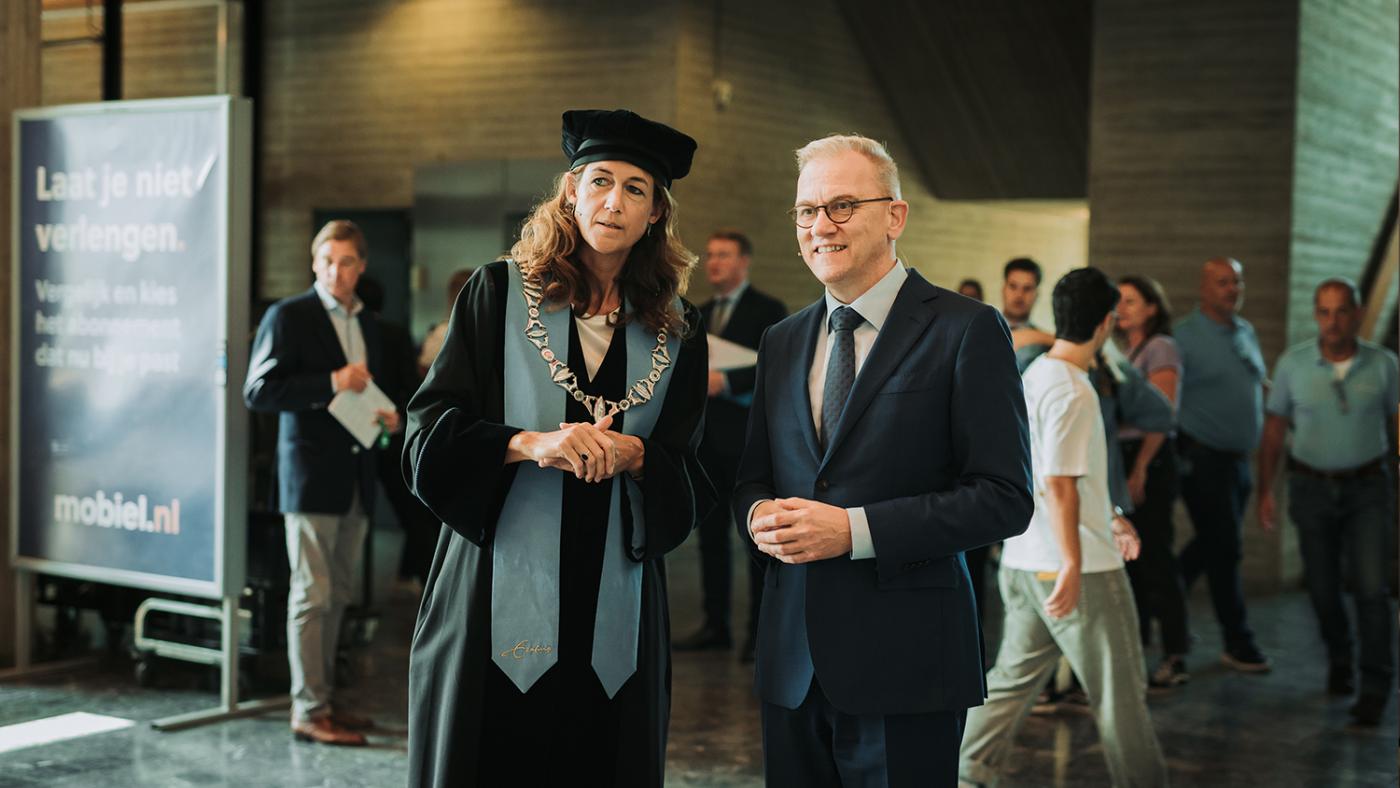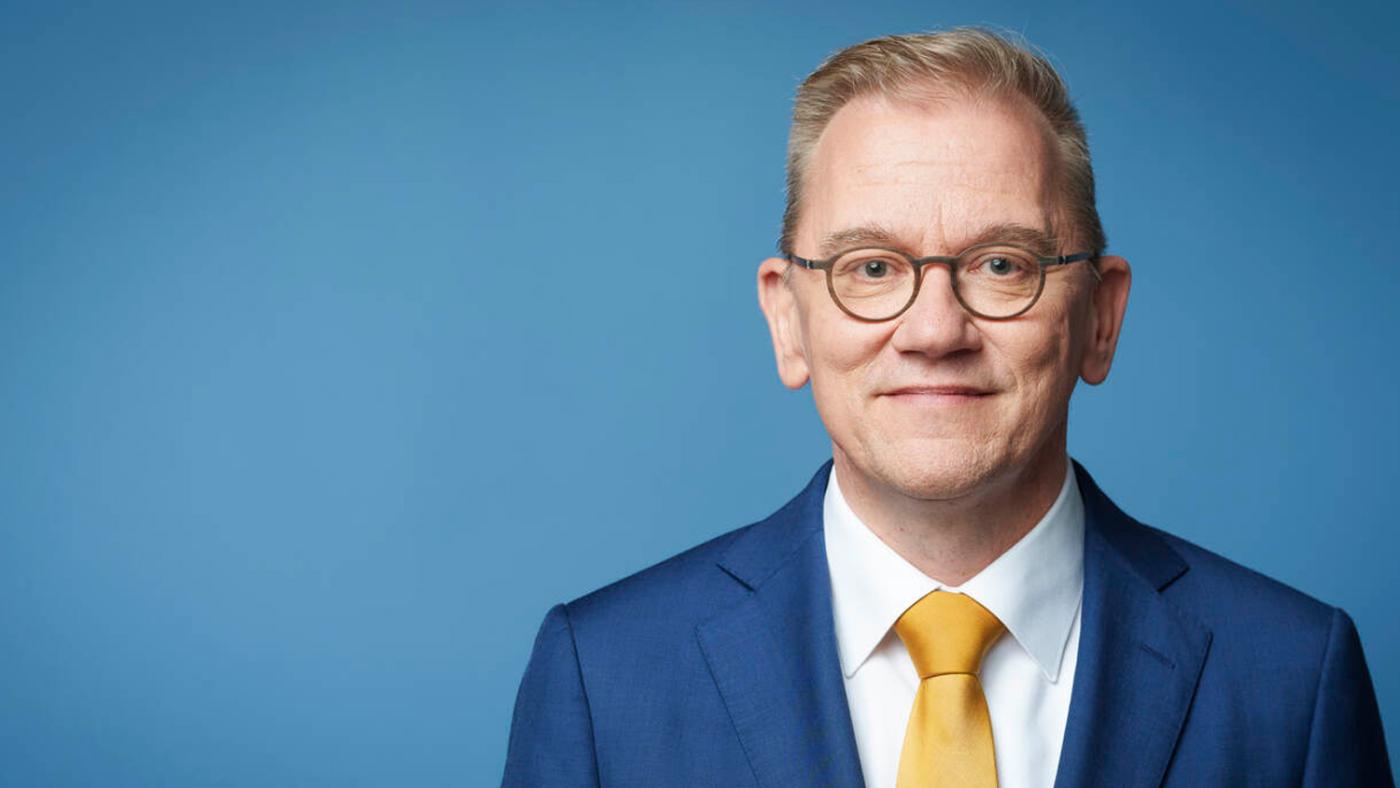Minister of Education, Eppo Bruins, resigns
'I hope that people will look back on my ministry with some compassion'

Eppo Bruins' appointment to the Ministry of Education, Culture and Science came as a surprise to some. He joined the cabinet as a member of the NSC (New Social Contract) party after several years in the Christian Union party. Many wondered what he was doing in what was considered a 'destructive' cabinet full of populists and extremists.
The coalition (comprised of the far-right party PVV, the liberals from VVD, the newcomer NSC, and the farmers' party, BBB) set about making severe cuts to the education and research budget. PVV celebrated the austerity measures, hailing them as a victory over 'activism' at universities. As the chair of the Advisory Council for Science, Technology and Innovation (Dutch acronym: AWTI, Ed.), Bruins had advocated for the opposite: additional spending on education and research. The contrast in his discourse was so evident that even the Dutch comedian, Arjen Lubach, poked fun at it on his talk show.
Bruins knew what he was getting himself into, as the four governing parties had announced their intention to cut funding for education and research in a policy agreement from May 2024. He became a minister after that.
Limit the damage
Bruins was also aware that his appointment seemed strange. He seized every opportunity to distance himself from the cabinet's policy, calling the budget cuts 'painful and ugly', but at the same time arguing he was bound by his mandate to enact them. He repeated several times that the cabinet wanted more money for defence and in Dutch people's pockets.
What drove Eppo Bruins to take the ministry? Did he do it out of vanity? After all, the Minister of Education, Culture and Science is at the centre of power, with all eyes on him. Or did he take the job to try to limit the damage? Someone had to do it, so why not him? At least he was an expert.
The latter seems to be his version of events. ‘I hope that people will look back [on my ministry] with mercy and say: "He did his best,"’ Bruins stated less than a year ago at the opening of the previous academic year. He said he wanted to fight ‘so that we don't destroy valuable things’.
Uncompromising
A few examples of the valuable things he strived to keep: Bruins upheld the so-called sector plans for universities, in which institutions collaborate and coordinate their choices at the national level. Instead of scrapping those, he scrapped the starter grants for young university lecturers. He also made an effort to prevent a fine for students who take longer to graduate from becoming 'disproportionate and harsh'. Despite these efforts, he always underscored that he was going to reduce spending, one way or another.
His ministry was also marked by large demonstrations. The proposal of a late-graduation fine caused outrage, and opposition parties threatened to abort the budget cuts in the Senate, where the cabinet did not have a majority. The four coalition parties then bypassed Bruins and met with four opposition parties to try to strike a deal. In the end, they reached a compromise, as a result of which the late-graduation fine was off the table, but half a billion euros were cut from the higher education budget anyway.
Bruins was pleased with the outcome. In a controversial interview with the Higher Education Press Agency (HOP) last June, after the cabinet had already fallen, the minister provoked fellow cabinet party VVD and thanked his political opponents. 'Thanks to the opposition and other friends of education, education is in a better position now than it was eleven months ago.’
USA
In the same interview, Bruins warned against what Donald Trump is doing to education in the US, despite his own position as a minister in a fallen populist right-wing cabinet. He stated that the Minister of Education, Culture and Science should have less power. ‘We are watching America with concern, but I don't think we have been far off that path in the Netherlands either. We also have people here who say that public broadcasting is biased and should be cut, and people who say that science is just an opinion.’
Was he trying to clear his name? It must be said that Bruins has consistently defended the autonomy of educational institutions, which is the same line as his predecessor, Robbert Dijkgraaf (D66). This was particularly evident in his answers to suggestive questions about demonstrations, riots and security at universities. Bruins repeatedly said that educational institutions are responsible for themselves: they make their own choices, and the minister cannot interfere. That is a very different tone compared to the ‘I am the policy’ approach of his PVV colleague Marjolein Faber. He gave the same answer when questioned about the consequences of the budget cuts for degree programmes with few students, stressing that it is up to each institution to make choices in that regard, and the minister cannot intervene in those choices.
Resignation
No matter how strange the budget cuts the coalition parties came up with, Bruins always stayed put and took responsibility for them. When the cabinet came up with new austerity measures for education, such as cutting funds for disadvantaged pupils, Bruins did not walk away even though he hoped that the House of Representatives would propose something else.
Bruins is only resigning now that other ministers from his party, NSC, are abandoning ship. He suddenly disappeared, following in the footsteps of his counterpart, Minister of Foreign Affairs Caspar Veldkamp. Bruins does not want to comment on his departure just yet, but it feels as if he is doing what is expected of him for the umpteenth time.

Photo: Martijn Beekman / Rijksoverheid
Who is Eppo Bruins?
Eppo Bruins (1969) has a PhD in Nuclear Physics and worked as an academic before going into politics. He was a member of the Christian Democratic Appeal party (CDA) until 2011, but left it when CDA joined the first Mark Rutte cabinet, which collaborated with PVV. He then joined the Christian Union, for which he served in the House of Representatives from December 2015 to March 2021.
Shortly before becoming a minister, Bruins was the chair of the Advisory Council for Science, Technology and Innovation (AWTI). He joined the Schoof cabinet as the Minister of Education, Culture and Science and a member of the New Social Contract (NSC) party.
Bruins was not raised in a religious family, but converted to evangelical Christianity at the age of eighteen. He told the Dutch newspaper Nederlands Dagblad about his ministerial position, saying that ‘God's guidance is in everything. To say that God wants me here is a big statement. At the same time, if I wasn't convinced, I wouldn't have done it.’
Comments
We appreciate relevant and respectful responses. Responding to DUB can be done by logging into the site. You can do so by creating a DUB account or by using your Solis ID. Comments that do not comply with our game rules will be deleted. Please read our response policy before responding.